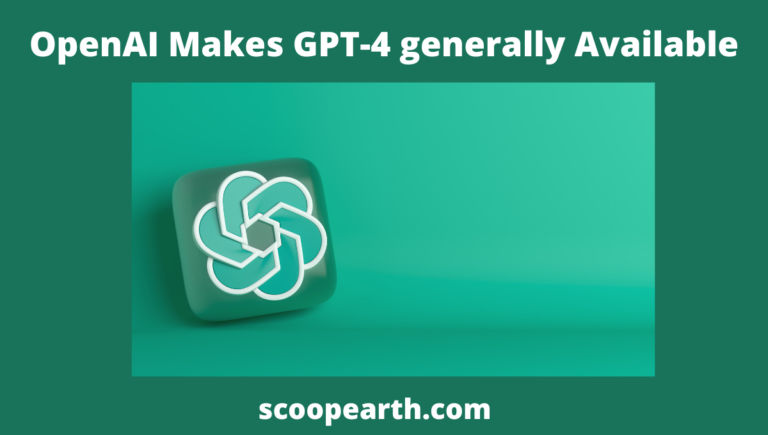Monday, 10 July 2023, Bengaluru, India
The most recent text-generating model from OpenAI, GPT-4, is now generally accessible via its API. Beginning this afternoon, all current OpenAI API developers “with a history of successful payments” will have access to GPT-4. By the end of this month, the company aims to grant access to new developers. After that, availability constraints will increase “depending on computing availability.”
Since March, “millions of developers have requested access to the GPT-4 API, and the range of innovative products leveraging GPT-4 is growing every day,” according to a blog post from OpenAI. In the future, chat-based models can accommodate any use case.
Compared to GPT-3.5, which only accepts text, GPT-4 can generate text (including code), accept text and image inputs, and perform at a “human level” on various professional and academic benchmarks. The GPT-4 model from OpenAI, like its predecessors, was trained using data that was both publicly accessible and licensed by the company.
Currently, not all OpenAI customers can access the image-understanding feature. Be My Eyes is the sole partner OpenAI uses to test it. However, a date has yet to be given for when it will be available to more customers.
It is important to remember that GPT-4 has flaws, just like even the most advanced generative AI models of the present. In some cases, with confidence, it “hallucinates” facts and commits reasoning mistakes. Additionally, it fails at challenging issues like including security flaws in the code it produces and needs to learn from its mistakes.
Future versions of GPT-4 and GPT-3.5 Turbo, one of OpenAI’s more recent but less powerful text-generating models (and one of the original models powering ChatGPT), will reportedly allow developers to fine-tune the models using their data, as has long been the case with several of OpenAI’s other text-generating models. According to OpenAI, the capacity should be available towards the end of the year.
Older OpenAI models, notably GPT-3 and its variations, will no longer be supported as of January 4, 2024. They will be replaced by new “base GPT-3” models, which one would assume are more compute-efficient. By January 4, developers using the old models must upgrade their integrations manually. Beyond that date, developers utilizing improved old models will need to fine-tune replacements on top of the new base GPT-3 models.
To make this transition as easy as possible, OpenAI noted, “We will be offering support to users who previously fine-tuned models.” As soon as the new completion models are prepared for early testing, we will contact developers who have recently used these older models and provide more information.
[Source of Information : Techcrunch.com]










